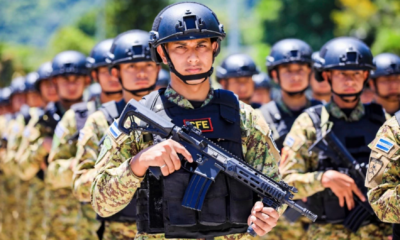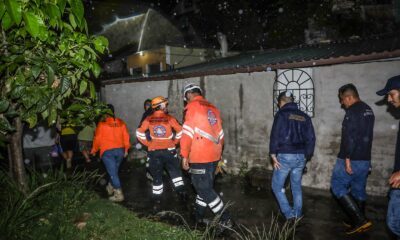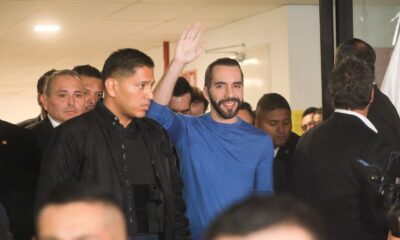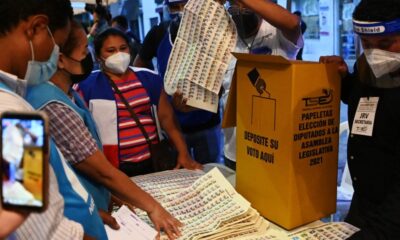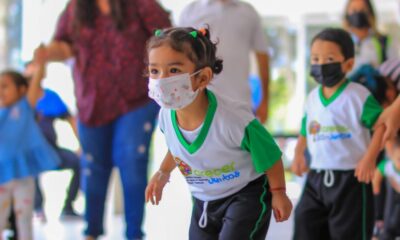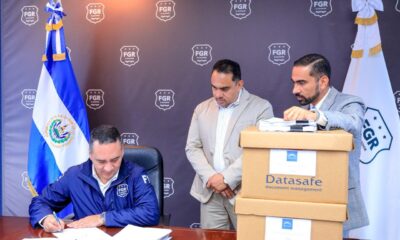Central America
“I hope to leave an irreversible path for the development of El Salvador”: President Nayib Bukele
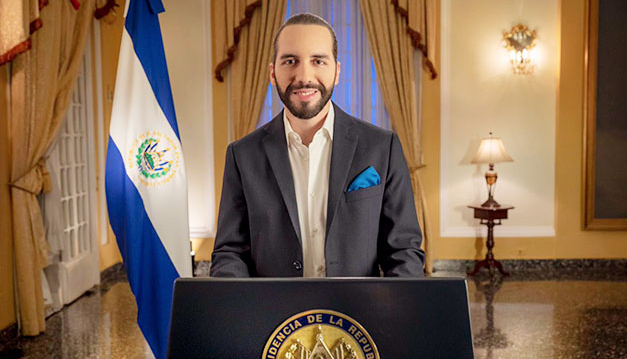
The political opposition attempts to halt the changes and transformations driven by the Executive, while organizations and the international community try to prevent sovereign decision-making, stated President Nayib Bukele in an open conversation on Space.
The President of the Republic, Nayib Bukele, expressed yesterday that, as a leader, his desire is not only to achieve the full development of El Salvador but also to pave the way for progress and prosperity that is irreversible, preventing the political opposition from undoing the achievements.
“I want to see a developed country, developed in the right way, and that we can be an example to the world,” said the president in the conversation held last night with thousands of people from the Latin American region who connected to the Space event through the X social network.
He reiterated that the Salvadoran political opposition could roll back the advances made by the current government if they return to power.
On February 4, presidential and legislative elections will be held in El Salvador, and voters will decide at the polls whether the political opposition (led by ARENA and FMLN) will regain power or if Nayib Bukele will be re-elected.
“I want El Salvador to be an example for the rest of the world. What I hope at the end of my term is to leave an irreversible path for El Salvador in its development, and there should be no way to return to the past,” reaffirmed the leader in the conversation, where participants were free to ask questions on various national and regional current affairs.
He pointed out that it has not been easy to drive changes and social transformations in El Salvador, especially due to the resistance encountered at the national level with the political opposition and at the international level with countries and organizations that try to influence politics and sovereign decisions.
In that sense, he specified that there are international organizations that fund individuals and media to influence political power directly or indirectly, promoting “harmful” agendas for countries like El Salvador, which seeks to overcome underdevelopment.
“They basically promote an agenda harmful to the world. Our countries are not only held hostage by their local problems but also by an international elite financed by people like George Soros, from the Open Society Foundation. There are more [people] promoting a civilizational destruction agenda with the aim of making money, as every world crisis is a business for them,” said Bukele.
He added that these organizations handle immense amounts of money and power, although their leaders have never been elected by populations. “There is a cohort of journalists, lawyers following this agenda. One of their fundamental pillars is these [media] outlets,” he said.
He argued that various bodies, such as the United Nations, the Inter-American Commission on Human Rights (CIDH), among others, also oppose poor nations developing their own agendas, contrary to the goals they claim to work towards.
For example, once the state of exception was implemented in March 2022, as a constitutional measure that strengthened the execution of the Territorial Control Plan, international organizations began criticizing, demanding an end to the implementation.
Likewise, when removing judges, politicians, and amending laws to eliminate conditions that fostered violence, international powers demanded a return to the previous “status quo,” even though our country was the most insecure in the world.
“Their argument was institutionality, the rule of law. What rule of law were they talking about? They simply protested, almost demanded, and required us to return to how the country was. Thank God our country is different now, and it was largely because we did not heed what these types of organizations and the international community were saying, which have never looked out for us,” he stated.
According to the president, the real goal of opposing historic changes is for populations in other countries to follow the example and replace the current politicians, as happened in El Salvador with the traditional parties ARENA and FMLN.
Central America
U.S. revokes visas of top Costa Rican lawmakers and constitutional judge

The United States government has revoked the visas of Rodrigo Arias, president of Costa Rica’s Legislative Assembly, and Paul Rueda, a justice of the Constitutional Chamber, expanding the list of Costa Rican officials affected by such measures in 2025.
The Constitutional Chamber confirmed the cancellation of Justice Rueda’s visa but stated it would not issue further comments. Meanwhile, local media reported the case of Rodrigo Arias, who has led the Assembly for the past three years and maintained a critical stance toward President Rodrigo Chaves’s administration.
Visa revocations against Costa Rican political figures began following a visit by U.S. Secretary of State Marco Rubio to San José in February. During the trip, Rubio warned of potential sanctions against those collaborating with foreign actors that could pose a risk to U.S. cybersecurity.
While in Costa Rica, Rubio praised President Chaves for halting Chinese companies’ involvement in major tech infrastructure projects, including the development of 5G networks.
Since then, the U.S. has also revoked visas of lawmakers Francisco Nicolás (National Liberation Party), Johana Obando and Cynthia Córdoba (Progressive Liberal Party), as well as Ana Sofía Machuca, general auditor of the Costa Rican Electricity Institute. All were accused of allegedly favoring Chinese firm Huawei in 5G-related tenders—criticism led by President Chaves and members of his cabinet.
In April, even former president and Nobel Peace Prize laureate Óscar Arias, brother of Rodrigo Arias, had his visa revoked. Arias has publicly criticized the U.S. over its military spending and, more recently, the immigration and trade policies of President Donald Trump.
As with previous cases, the U.S. government has not disclosed the specific reasons behind the visa revocations.
Central America
Guatemala hit by over 300 quakes; death toll rises to seven
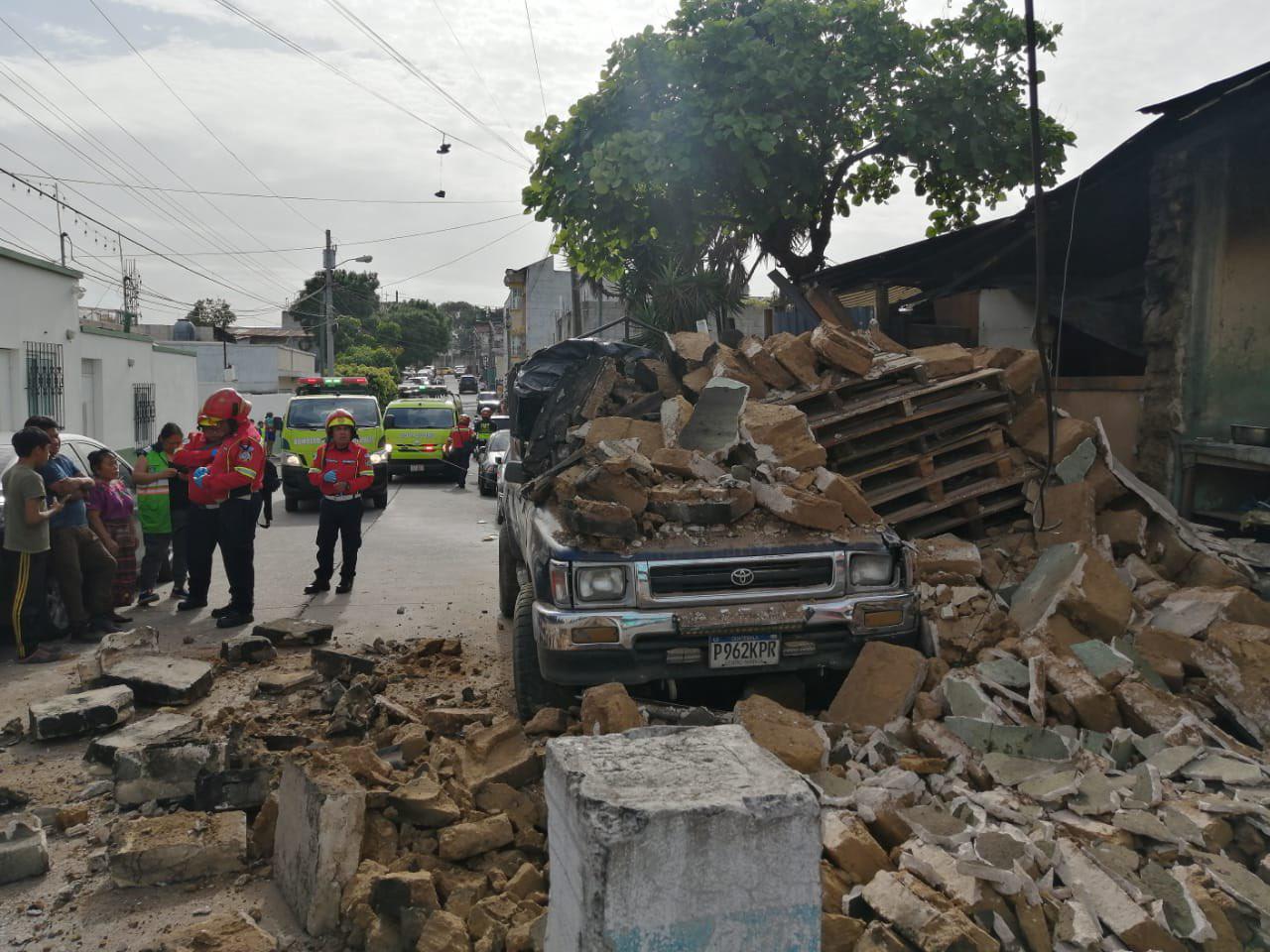
At least seven people have died as a result of a series of earthquakes that have shaken three departments in central Guatemala since Tuesday, according to the National Coordinator for Disaster Reduction (Conred).
In its latest update, Conred reported that 2,138 people have been affected, and 347 have been displaced and are receiving humanitarian assistance.
“Our deepest condolences to the families. There are no words at a time like this, but know that the pain you feel is the pain of the entire Guatemalan people,” said President Bernardo Arévalo, expressing solidarity with the families of the victims. Of the seven deceased, five have been identified, while two remain unidentified as the National Institute of Forensic Sciences (Inacif) continues its work.
To address the emergency, the government has opened nine shelters, currently housing 586 people affected by the tremors.
Since the start of seismic activity, the National Institute for Seismology, Volcanology, Meteorology and Hydrology (Insivumeh) has recorded 340 earthquakes, including 32 in the last few hours, with magnitudes ranging between 1.2 and 5.6.
One of the most severely impacted areas is the Santa María bridge, located at kilometer 39+100 on the road to Palín, Escuintla. Authorities have begun coordinating its repair.
A total of 28 road segments have sustained damage: 11 in Sacatepéquez, 7 in Guatemala, 6 in Chimaltenango, and 4 in Escuintla.
Conred has urged the population to drive cautiously, avoid speeding, take extra care in mountainous areas or on roads with a history of structural issues, and report any emergencies to the 24-hour hotline 119.
Central America
Dengue crisis in Panama: co-circulating serotypes fuel rise in fatal cases

Health authorities in Panama reported on Wednesday that the country has recorded a total of 6,458 dengue cases and 10 related deaths through epidemiological week 25, which spanned from June 15 to 21, 2025.
Of the total reported cases, 576 patients required hospitalization, and 55 cases have been classified as severe, according to a statement released by the Ministry of Health (Minsa).
The metropolitan area and San Miguelito, both in the capital, account for the majority of cases, with 2,753 infections. The reported deaths occurred in the western provinces of Chiriquí (4) and Bocas del Toro (2); the eastern province of Darién (2); and Panamá Este and Coclé, with one death each.
“The national dengue incidence rate during epidemiological week 25 of 2025 is 125.8 cases per 100,000 inhabitants. Most cases have occurred in individuals aged 10 to 59 years,” the official report stated.
Panama is currently experiencing co-circulation of all four dengue serotypes, with DENV-3 and DENV-4 being the most prevalent. This, according to Minsa, “increases the likelihood of severe and fatal cases.”
The Ministry emphasized that dengue is a serious and potentially deadly disease transmitted by the Aedes aegypti mosquito, and noted that it has ramped up nationwide operations through vector control teams to reduce infection rates.
However, officials stressed that citizen participation remains critical, urging the public to eliminate mosquito breeding sites both inside and around their homes.
-
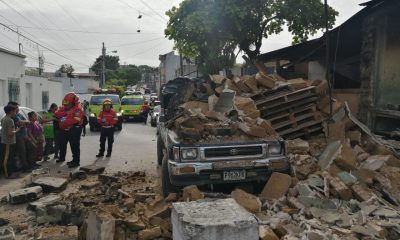
 Central America4 days ago
Central America4 days agoGuatemala hit by over 300 quakes; death toll rises to seven
-

 Central America4 days ago
Central America4 days agoU.S. revokes visas of top Costa Rican lawmakers and constitutional judge
-

 International3 days ago
International3 days agoSheinbaum slams ICE raids after 355 mexicans detained and 67,000 repatriated
-
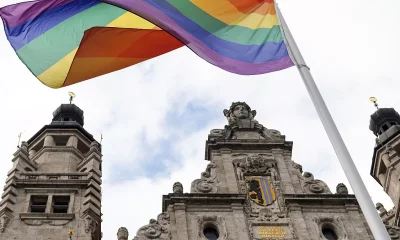
 International4 days ago
International4 days agoGerman parliament orders removal of LGBTQ+ flags amid growing controversy
-

 International2 days ago
International2 days agoTwo missing after torrential rains cause flooding in Catalonia
-

 International3 days ago
International3 days agoTrump defends Bolsonaro, hints at talks with Brazil after tariff warning
-
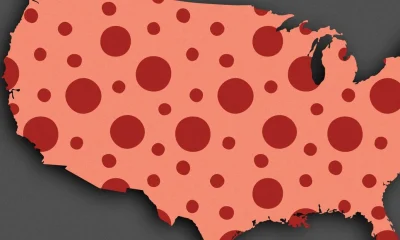
 International4 days ago
International4 days agoCDC reports record measles outbreaks in 39 U.S. jurisdictions this year
-
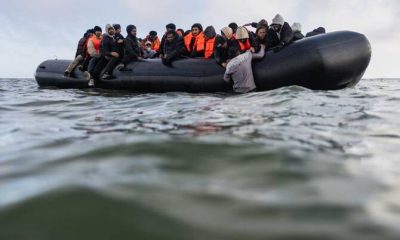
 International4 days ago
International4 days agoUK and France seal innovative migrant exchange deal to curb channel crossings
-

 International4 days ago
International4 days agoFederal judge halts Trump’s order to end birthright citizenship
-
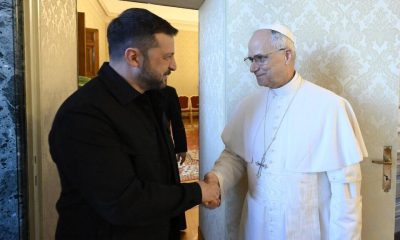
 International4 days ago
International4 days agoUkraine gains $10 billion in commitments during Rome Recovery Forum
-
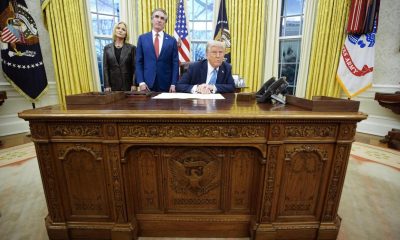
 International3 days ago
International3 days agoTrump administration begins downsizing ‘bloated’ state department workforce
-
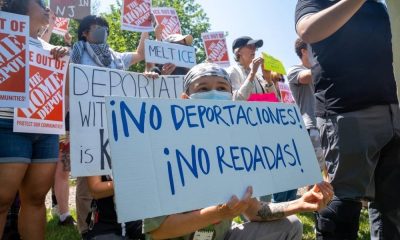
 International1 day ago
International1 day agoMexico confirms death of farmworker hurt in ICE raid, calls for investigation
-

 International4 days ago
International4 days agoSix agents penalized for conduct failures in July 2024 attack on Donald Trump
-

 International1 day ago
International1 day agoTrump’s 30% tariff undermines U.S.-Mexico talks, but negotiations will continue
-

 International6 hours ago
International6 hours agoThe rescue operation of missing people ends after a ship was wrecked by a Houthi attack in the Red Sea
-

 International6 hours ago
International6 hours agoPatriot missiles, key anti-missile systems for the defense of the Ukrainian sky
-
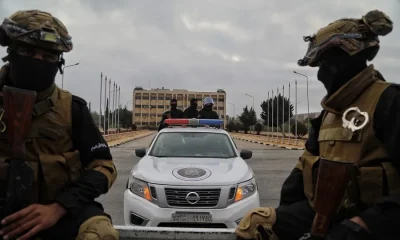
 International6 hours ago
International6 hours agoDeaths from clashes between military groups and clans in southern Syria rise to 30
-

 International6 hours ago
International6 hours agoAnti-mafia operation in Italy with 54 arrested for drug trafficking from Ecuador and Spain
-
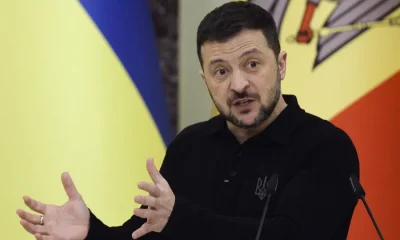
 International6 hours ago
International6 hours agoZelenski proposes the Minister of Economy, Sviridenko, as the new prime minister
-
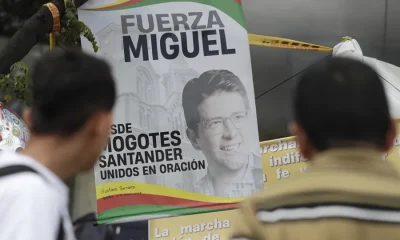
 International6 hours ago
International6 hours agoColombian Senator Uribe Turbay, shows clinical improvement and begins neurological rehabilitation
-
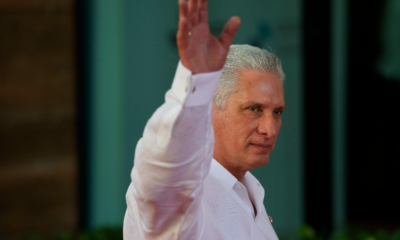
 International2 days ago
International2 days agoU.S. sanctions cuban president Díaz-Canel over regime crackdown on protesters
-
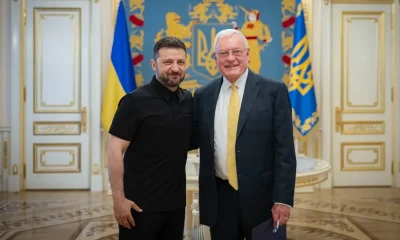
 International6 hours ago
International6 hours agoZelenski talks to Kellogg in Kiev about sanctions against Russia and the sale of weapons to Ukraine
-

 International6 hours ago
International6 hours agoIsrael kills at least 20 Palestinians in attacks from dawn against the Gaza Strip











































































